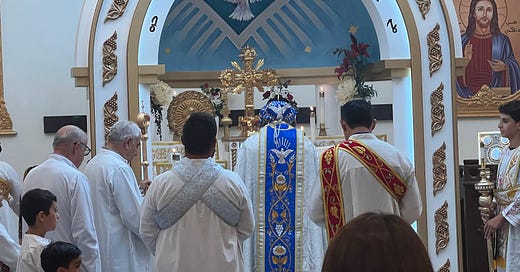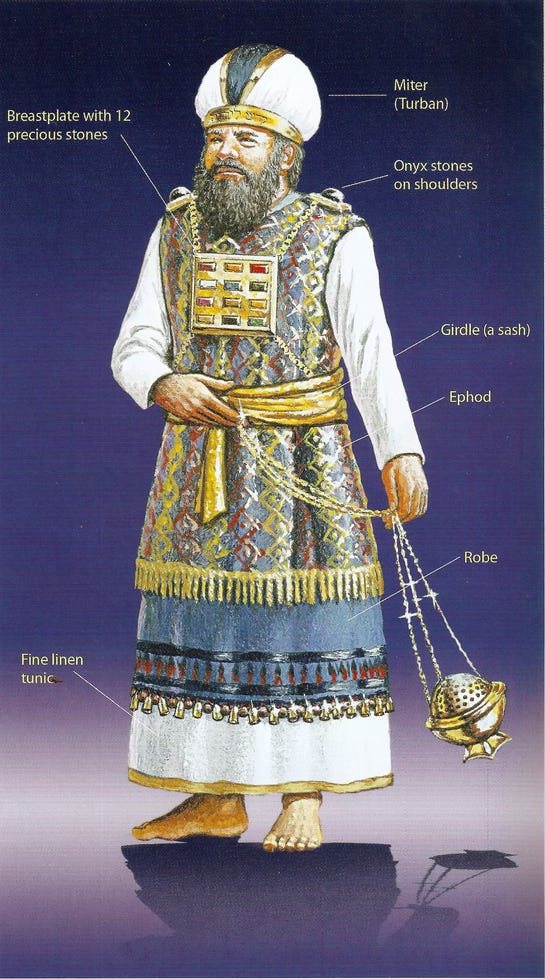"Smells and Bells" - Ancient Prescription or Undesirable Practice?
The Orthodox Church is replete with incense, bells, icons, and altar vestments. Is this the right model? Or is this from ancient time and no longer current?
This morning, my Bible reading took me to Exodus, the second book of the Pentateuch, also known as the first five books of the Old Testament. It was quite enlightening once again how much effort God put into the beauty of the house the priests would offer worship to Him and how they would look while doing so.
There, the Lord gives very explicit instructions on the Tabernacle, its decorations, and necessary items for ritual worship, as well as on the vestments and ordination of Aaron, the priest, and his sons. In particular, Exodus 25-30 describe this, with a shorter portion in Exodus 31 describing the craftsmen Bezalel and Oholiab being chosen by God Himself as the artists to create much of these needed items for both the tabernacle and the priests serving in it. Even the incense-making and the creation of anointing oil are described in detail.
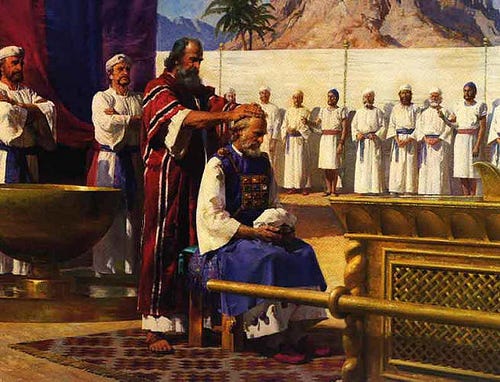
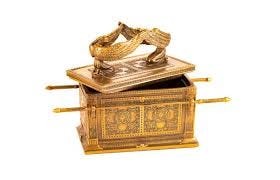
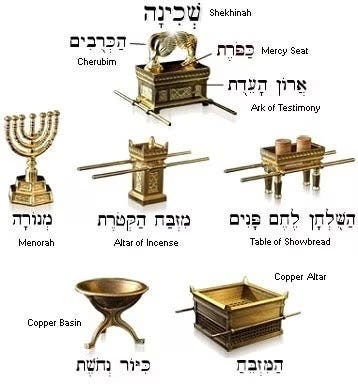
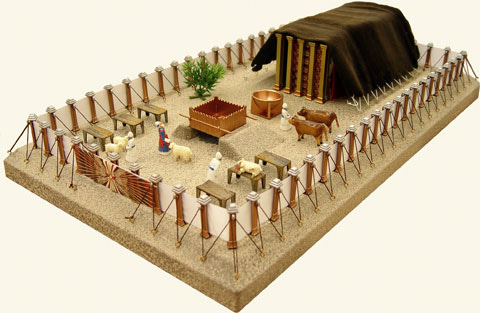
When we look at Orthodox worship today, we see many similar concepts still in active use: vessels for the holy gifts, priestly vestments, censers to burn incense, candle sticks, icons, paintings, curtains, and even the fact that our Syriac Orthodox priests wear special slippers at the altar or others no shoes at all, e.g., at the Coptic Orthodox altar. They are standing on holy ground!
Having spent forty-five years in a Protestant worship environment, I had seen many different settings…none of which resembled anything close to God's prescriptions to the Israelites. I have to say, though, that I never worshipped in an old church building, which may have looked more closely to what I envision as I write this. Visiting Westminster Abbey in London might be a reference point of a Protestant church that invites worship in my heart.

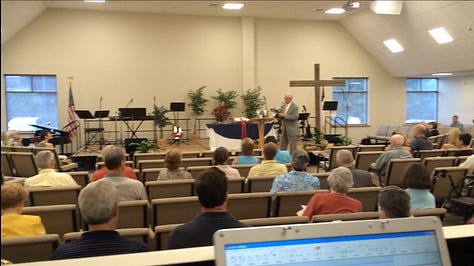
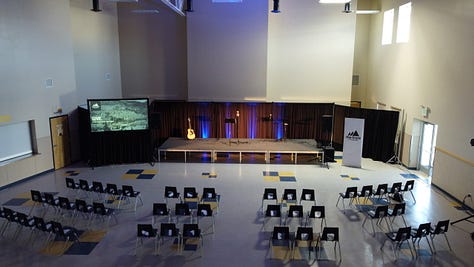
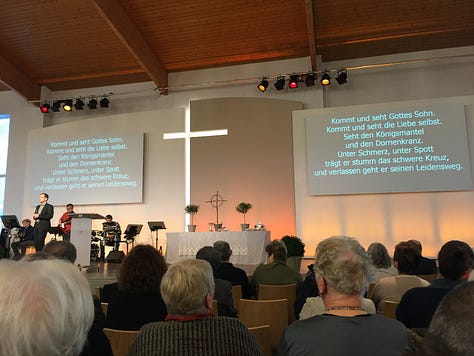
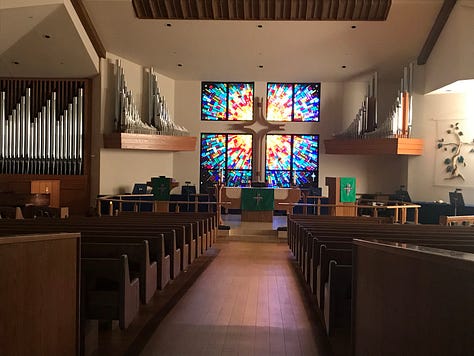
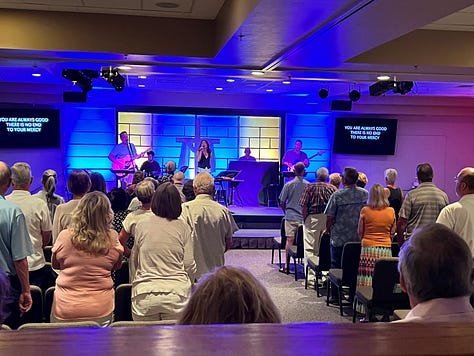
Two things probably were a big turning point in my desire for a worship experience that resembled that depicted in the pages of the holy Bible (and what I had already experienced in an Orthodox setting by then):
Watching Steven Furtick and Elevation Church, which took the pastor in jeans and a shirt to the next level, and
I visited Urbana, described as “the world's largest student missions conference,” at the end of 2022, where I spent New Year’s Eve at a worship event, which genuinely disturbed me. Biblical words of institution I would typically hear at my regular evangelical church during communion were distorted and hardly recognizable. Communion cups were distributed to the enormous crowd, and everyone took communion as they saw fit.





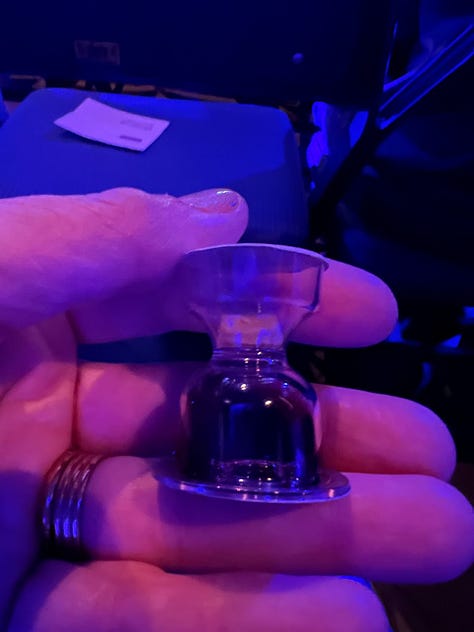
All these experiences rushed back into my head as I thought about this passage from the book of Exodus over the past few days of reading. Look at how meticulous our Lord was in His instructions.
The Anointing Oil and Incense
22 The Lord spoke to Moses, 23 “Take the finest spices: of liquid myrrh five hundred shekels, and of sweet-smelling cinnamon half as much, that is, two hundred fifty, and two hundred fifty of aromatic cane, 24 and five hundred of cassia—measured by the sanctuary shekel—and a hin of olive oil, 25 and you shall make of these a sacred anointing oil blended as by the perfumer; it shall be a holy anointing oil. 26 With it you shall anoint the tent of meeting and the ark of the covenant 27 and the table and all its utensils and the lampstand and its utensils and the altar of incense 28 and the altar of burnt offering with all its utensils and the basin with its stand; 29 you shall consecrate them, so that they may be most holy; whatever touches them will become holy. 30 You shall anoint Aaron and his sons and consecrate them to serve me as priests. 31 You shall say to the Israelites: This shall be my holy anointing oil throughout your generations. 32 It shall not be used in any ordinary anointing of the body, and you shall make no other like it in composition; it is holy, and it shall be holy to you. 33 Whoever blends any like it or whoever puts any of it on an unqualified person shall be cut off from the people.”
34 The Lord said to Moses, “Take sweet spices, stacte, and onycha, and galbanum, sweet spices with pure frankincense (an equal part of each), 35 and make an incense blended as by the perfumer, seasoned with salt, pure and holy, 36 and you shall beat some of it into powder and put part of it before the covenant in the tent of meeting, where I shall meet with you; it shall be most holy for you. 37 When you make incense according to this composition, you shall not make it for yourselves; it shall be regarded by you as holy to the Lord. 38 Whoever makes any like it to use as perfume shall be cut off from the people.”
- Exodus 30-22-38
I cannot, in good faith, discard all these instructions when the evidence throughout the Old Testament and in the early Church Fathers’ descriptions clearly points to an ordered worship.
A book I have in my collection, entitled Religions of Rome, Volume 2 - A Sourcebook provides the following account of the search of a house-church in Cirta, North Africa, in A.D. 303, and what was found (bolding is mine):
In the eighth consulship of Diocletian and the seventh of Maximian <A.D. 303> on the fourteenth day before the Kalends of June <19 May>, from the records of Munatius Felix, high priest for life, mayor of the colonia of Cirta. Arrived at the house where the Christians used to meet, Felix, high priest for life and mayor [of the town], said to Paul the bishop: Bring out the texts of the law and whatever else you have here, as has been instructed, so that you can obey the order.'
Paul the bishop said: 'The readers have our texts, but we will give you what we have here.'
Felix, high priest for life and mayor [of the town] said to Paul the bishop: 'Point out the readers or send for them.' Paul the bishop said: 'You know them all.' Felix, high priest for life and mayor of the town said: 'We do not know them.' Paul the bishop said: 'The municipal office knows them, that is the clerks Edusius and Junius.
Felix, high priest for life and mayor of the town said: 'Leaving aside the matter of the readers, whom the office will point out, give us what you have.' Paul the bishop, and Montanus, Victor Deusatelius and Memorius the priests remained seated; Mars and Helius deacons stood by, as did Marcuclius, Catullinus, Silvanus and Carosus under-deacons. Januarius, Meraclus, Fructuosus, Miggin, Saturninus, Victor (son of Samsuricus] and the other diggers [brought forth the objects] Victor son of Aufidius made the following brief record: two gold cups, also six silver cups, six silver jugs, a silver vessel, seven silver lamps, two candlesticks, seven small bronze candelabra with their lamps, also eleven bronze lamps with their chains, eighty-two women's tunics, thirty-eight cloaks, sixteen men's tunics, thirteen pairs of men's shoes, forty-seven pairs of women's shoes, nineteen rustic belts.
Felix, high priest for life and mayor of the town, said to the diggers Marcuclius, Silvanus and Carosus: 'Bring out what you have.'
Silvanus and Carosus said: We have put out everything that was here.' Felix, high priest for life and mayor of the town, said to Marcuclius, Silvanus and Carosus: 'Your answer is entered in the record.'
After some empty cupboards were found in the library, Silvanus then brought out a silver vase and a silver lamp, which he said he had found behind a chest.
Victor son of Aufidius said to Silvanus: 'You would have been dead, if you had not found them.'
Felix, high priest for life and mayor of the town, said to Silvanus: 'Look more carefully, to make sure nothing is left here.'
Silvanus said: 'Nothing is left; we have put everything out.'
And when the dining-room was opened, they found there four storage jars and six chests.
Felix, high priest for life and mayor of the town, said: 'Bring out the texts that you have so that we can obey the instructions and order of the emperors.' Catulinus brought out one very large volume.
Felix, high priest for life and mayor of the town, said to Marcuclius and Silvanus: 'Why have you given only one volume? Bring out the texts you have.' Catulinus and Marcuclius said: 'We have no more, because we are under-deacons. But the readers have the volumes.'
Felix, high priest for life and mayor of the town, said to Marcuclius and Catulinus: 'Point out the readers.' Marcuclius and Catulinus said: 'We do not know where they live.'
Felix, high priest for life and mayor of the town, said to Catulinus and Marcuclius: 'If you don't know where they live tell me their names.'
Catulinus and Marcuclius said: 'We are not informers. Here we are. Order us to be killed.'
Felix, high priest for life and mayor of the town, said: 'Arrest them.'1
From the early Christian church, it is abundantly clear that worship was done with the greatest reverence by bishops, priests, deacons, and readers. Both ritual vessels and the Gospel book are mentioned. In addition, the garments listed show that early Christians also cared for the poor among them.
As I processed my reading from Exodus again this morning, I realized that the Orthodox Church has continued these instructions from the Lord for orderly worship for almost two thousand years. May we never drift from this course. Glory to the name of the Father, the Son, and the Holy Spirit, now and always!
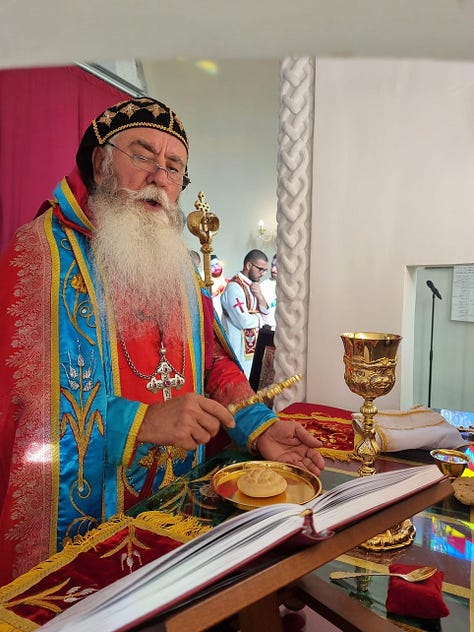
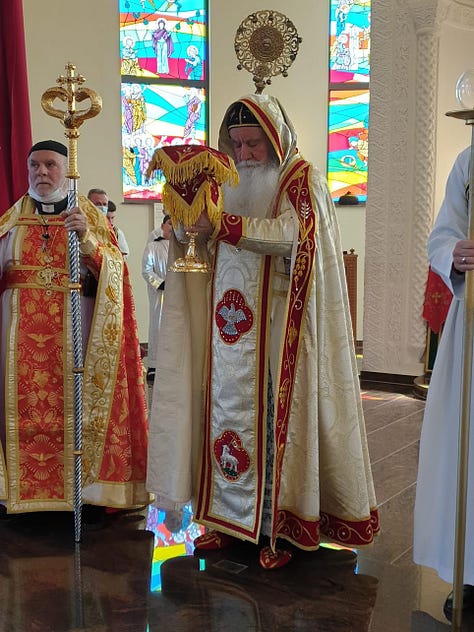
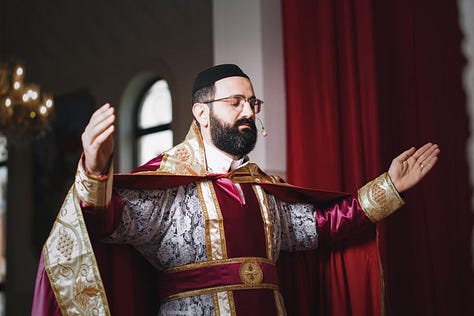
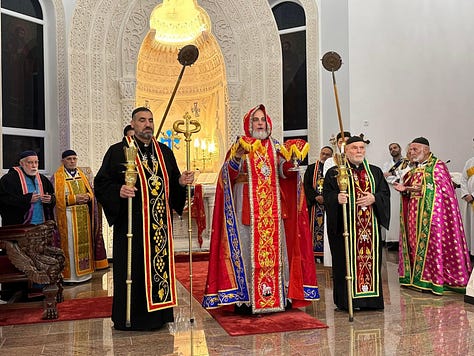
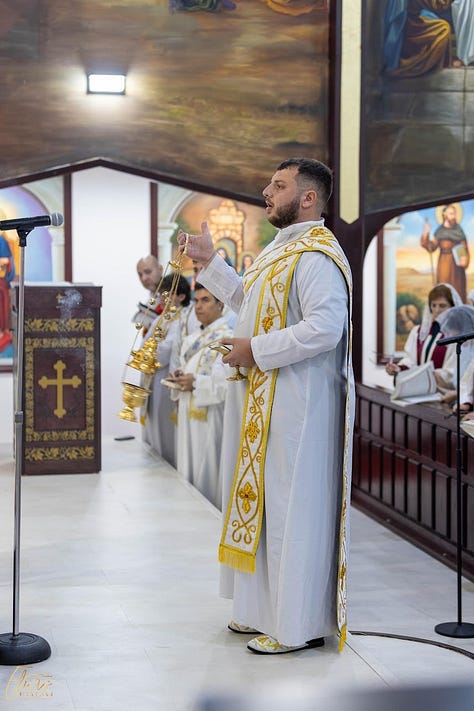
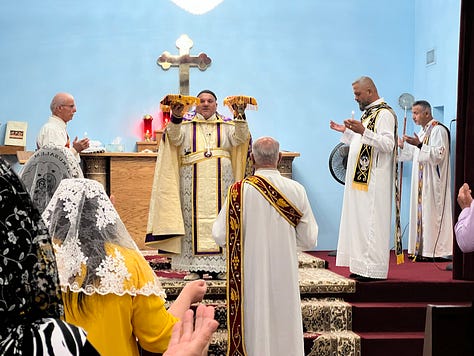
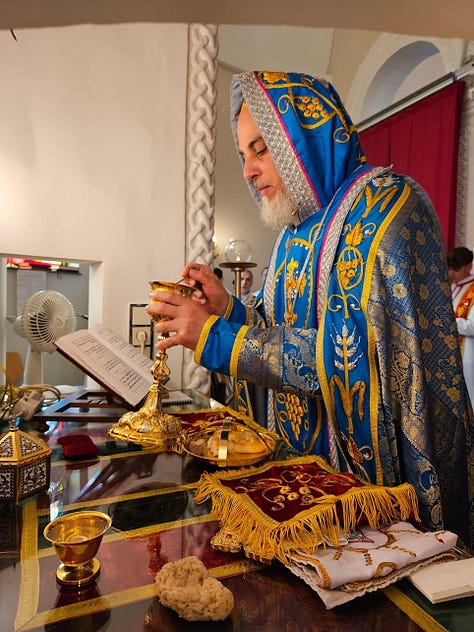
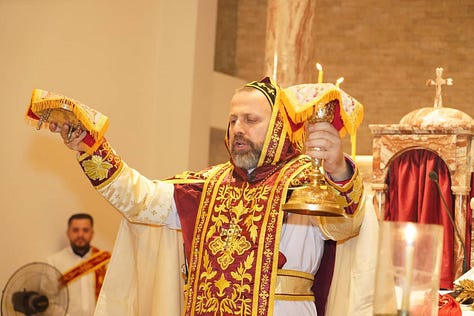
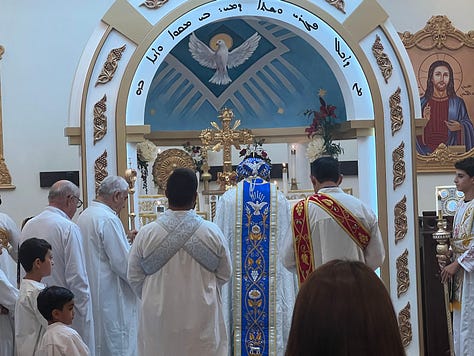
Beard, Mary, John North, and S. R. F. Price. 1998. Religions of Rome : Volume 2, a Sourcebook. Cambridge: Cambridge University Press.

